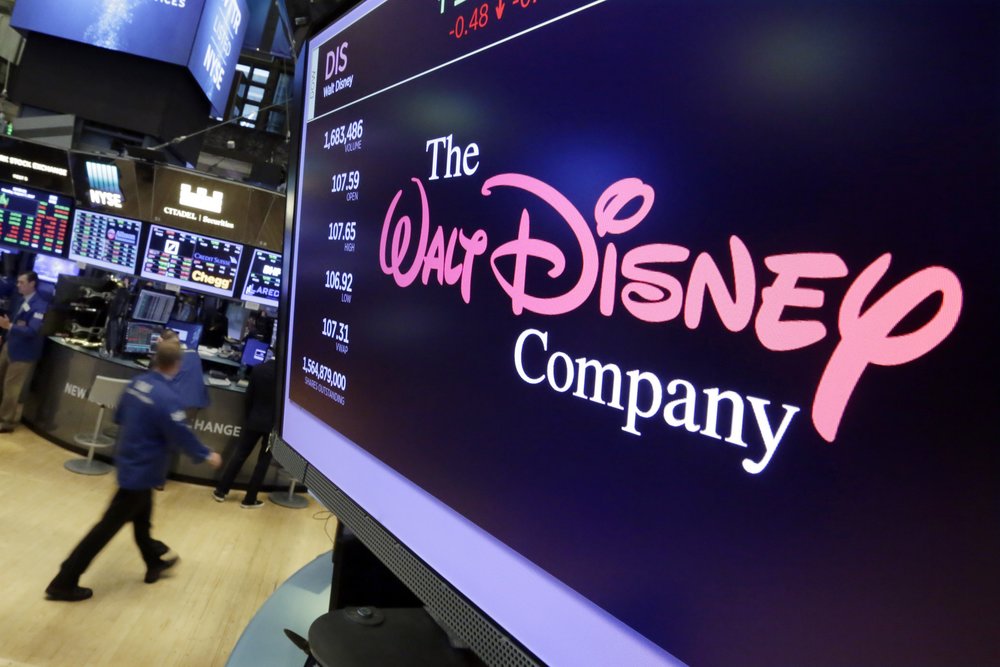Disney recently received a regulatory greenlight from the Justice Department for the acquisition of Rupert Murdoch’s entertainment conglomerate, 21st Century Fox.
To win the bidding war against Comcast, Disney bumped up its offer from $46 billion to $71.3 billion this week to acquire the Fox television and film empire. The offer was finally approved by the DOJ after Disney fulfilled its anti-trust clearance requirement and agreed to divest all 22 of Fox’s sports networks after the acquisition.

Disney bumped up its offer for Fox acquisition deal from $46 billion to $71.3 billion after cable operator Comcast joined the bidding battle
Disney’s Revamped Offer
On Wednesday, 21st Century Fox accepted Disney’s revamped offer of $71.3 billion and issued a statement saying that the two entertainment empires have finally decided to enter an agreement, ending the fierce bidding war between Disney and Comcast. Fox said that Disney’s new proposal was 35 per cent higher than its previous offer and $6 billion more than Comcast’s bid.
The $71.3 billion proposal was hastily put together by Disney’s CEO Robert A. Iger, who gambled his entire legacy on the acquisition deal, just a day before Fox had planned an important board meeting to discuss Comcast’s offer of $65 billion, which was much higher than what Disney had proposed before. Now Comcast will either have to respond by upping its bid or pulling out of the acquisition battle altogether.
Brian L. Roberts, the CEO of Comcast, says that winning the acquisition deal for Murdoch’s media empire, which includes an array of streaming businesses, Hollywood studios and cable networks, is top priority for him, but it is highly unlikely that his company will be able to beat Disney’s new proposal, and even if it does, its determined competitor is likely to bump up the offer once again.
Disney’s New Strategy
The acquisition deal includes most of Murdoch’s media and entertainment conglomerate such as the National Geographic and FX cable channels, 20th Century Fox film studio, 22 regional sports networks and two major international businesses in Europe and Asia, Sky and Star India. However, the deal does not include Fox News, the entire broadcast network, FS1 sports networks and other local television channels.
Murdoch released a statement saying that he is confident that combining Disney’s iconic assets with those of 21st Century Fox will form one of the most powerful and innovative media empires in the world.
Both Comcast and Disney are eagerly pursuing the acquisition deal to own Fox’s foreign assets which will help the companies to expand their businesses in international markets. But like most other media companies, Comcast and Disney are faced with the threat of decreasing cable and satellite popularity which could make the deal unprofitable.
Part of Disney’s new strategy after the acquisition will be to provide viewers entertainment on demand through the streaming service Hulu, which will be sold to the entertainment company as part of Fox’s assets. The streaming service, jointly owned by Comcast, Fox and Disney, boasts a subscriber base of 20 million viewers and may potentially be Disney’s best shot in competing against Silicon Valley giants like Amazon, Google and Netflix, who already have well-established entertainment streaming services with millions of subscribers.

Comcast tried to acquire Disney in 2004 for $54 billion but the offer was turned down for being too low
Valuing Stocks
Iger released a statement saying that the Fox-Disney merger comes at a crucial time when the entertainment industry is undergoing dynamic changes. By combining two of the most powerful media empires in the world, Disney will be able to create better entertainment content and revise its business strategy to meet the changing demands of the industry.
Disney’s revamped offer consists of $35.7 billion in cash as well as an equal amount in the company’s shares. After the acquisition, Fox will own 343 million shares in its new parent company and shareholders will have the option of receiving a cash value of $38 for each share in Fox or Disney.
Disney is also planning to adopt a protective strategy on its stocks by offering a set ratio of its company shares for every Fox share to ensure that each share has a value of $38 – this investment strategy is often known as a collar.
Disney and Comcast are two of the fiercest competitors in the entertainment industry who also went had-to-head in 2004 when Comcast tried to acquire its competitor for $54 billion. But Disney’s board of directors withdrew from the deal, saying that the cable operator’s offer was too low.










